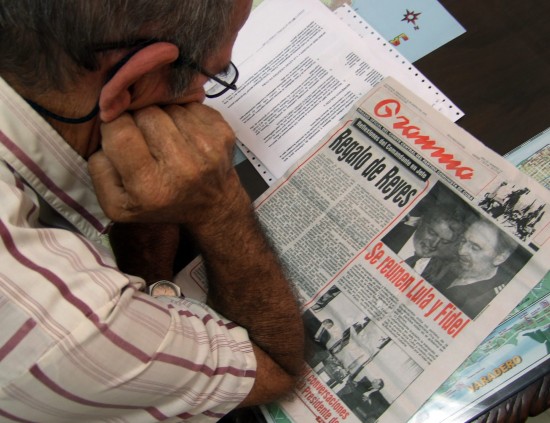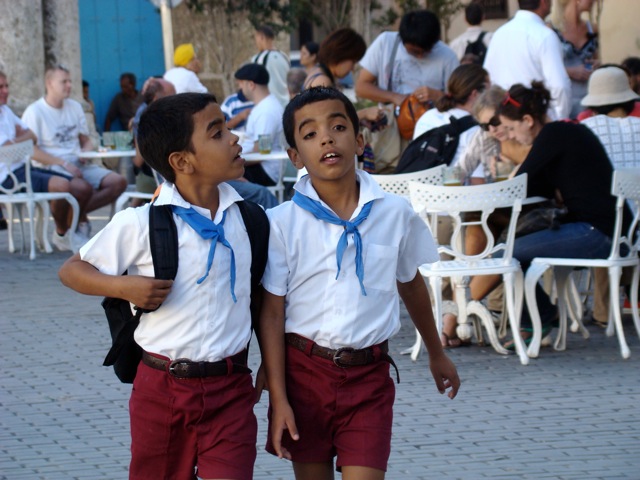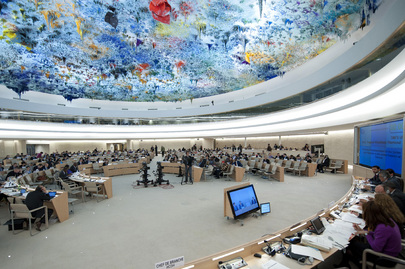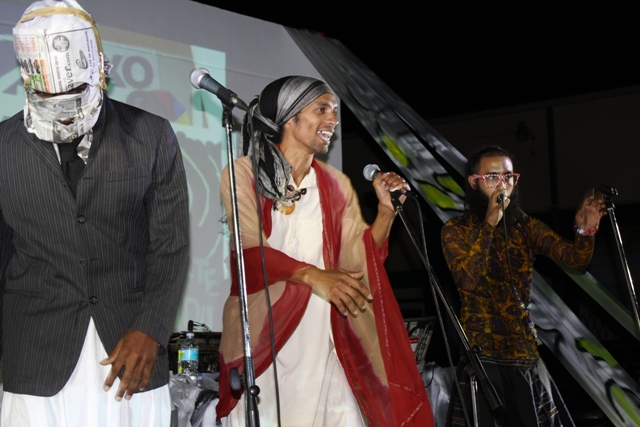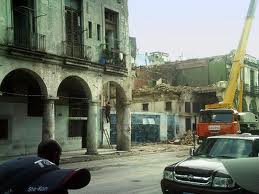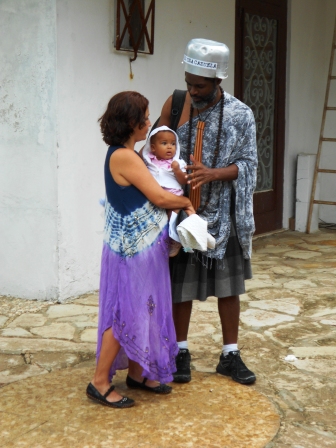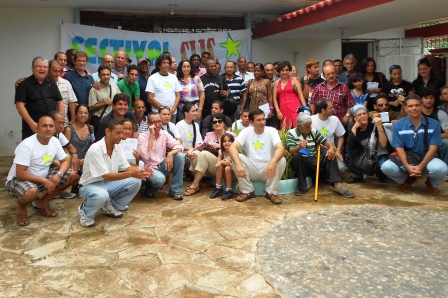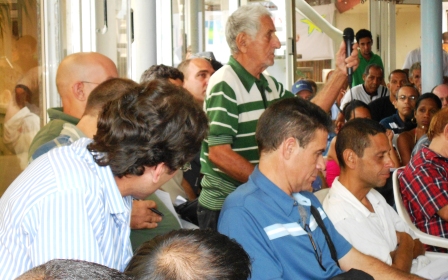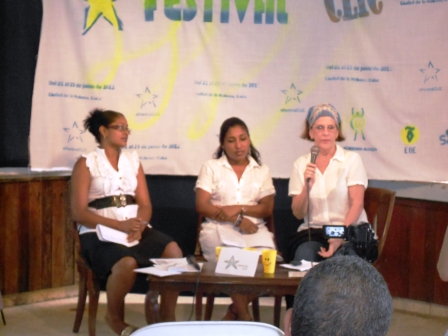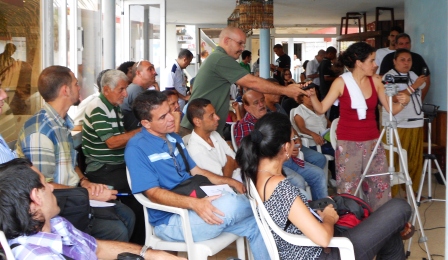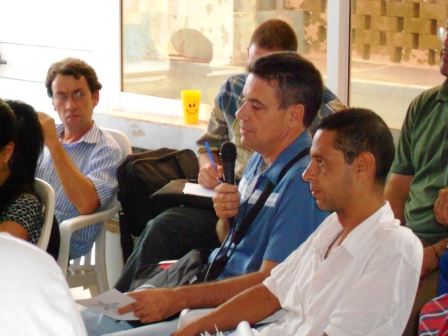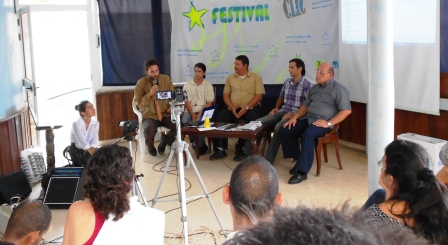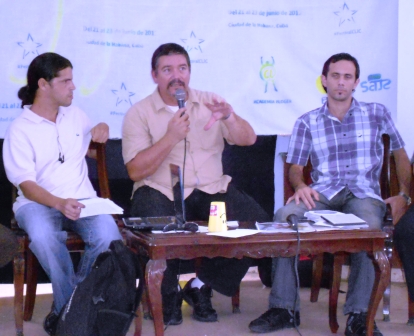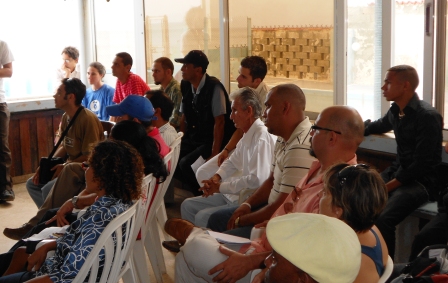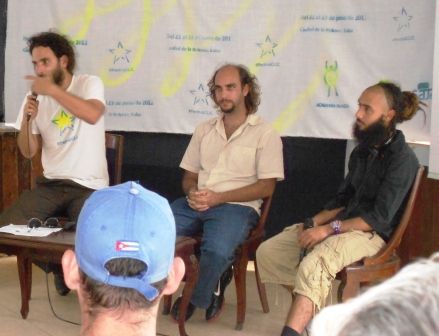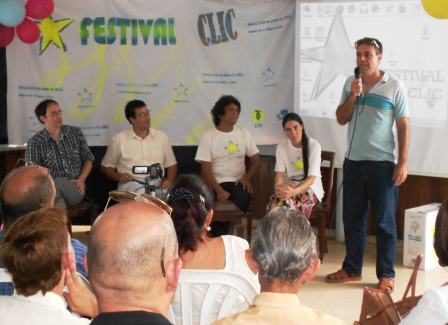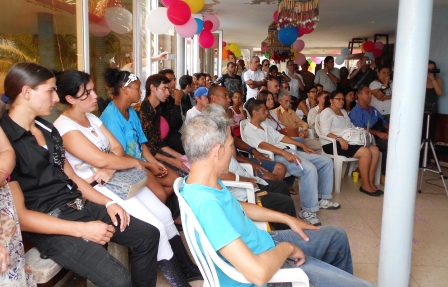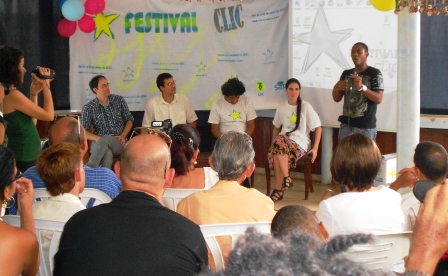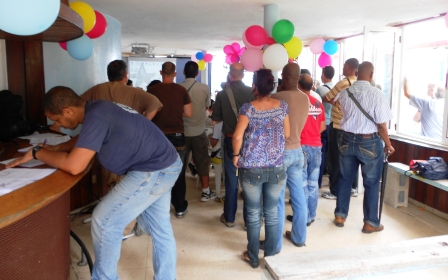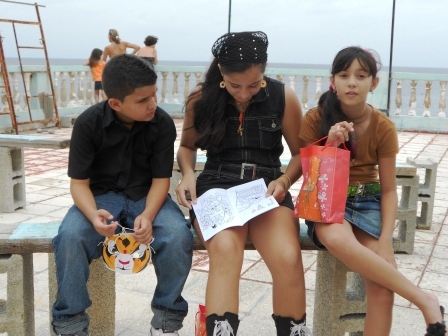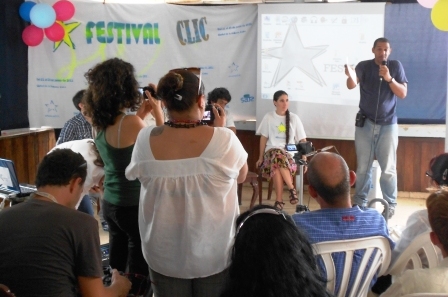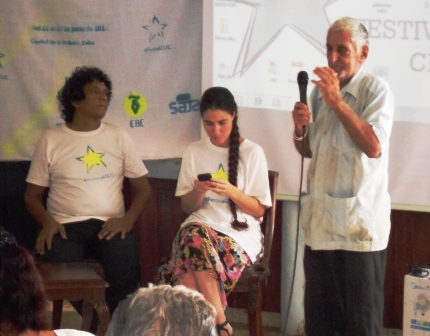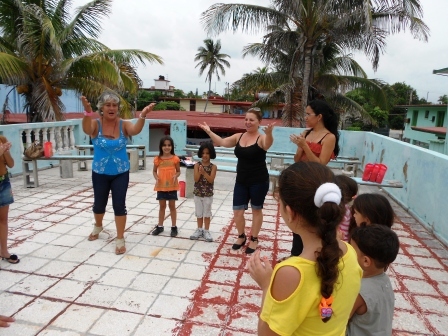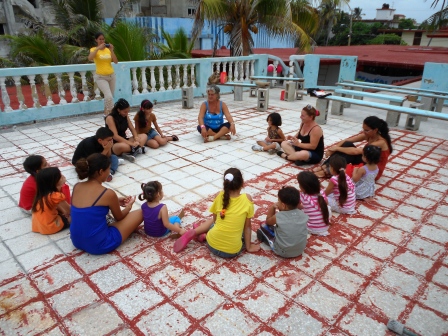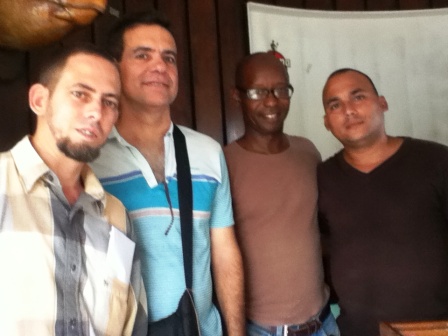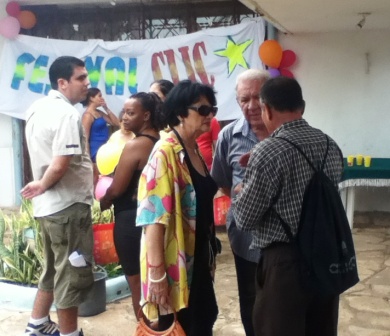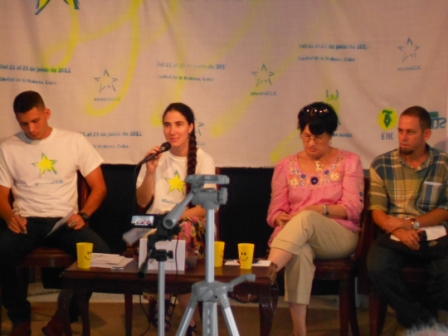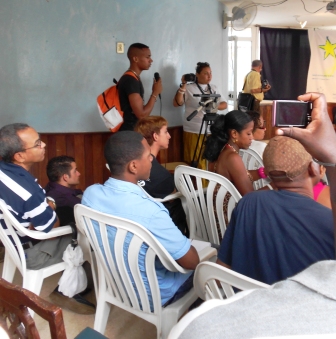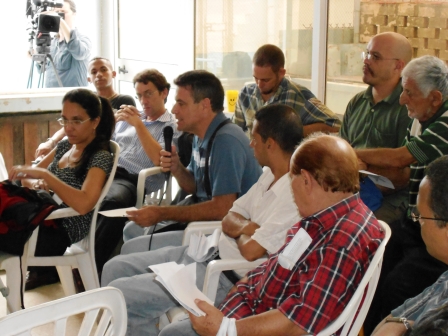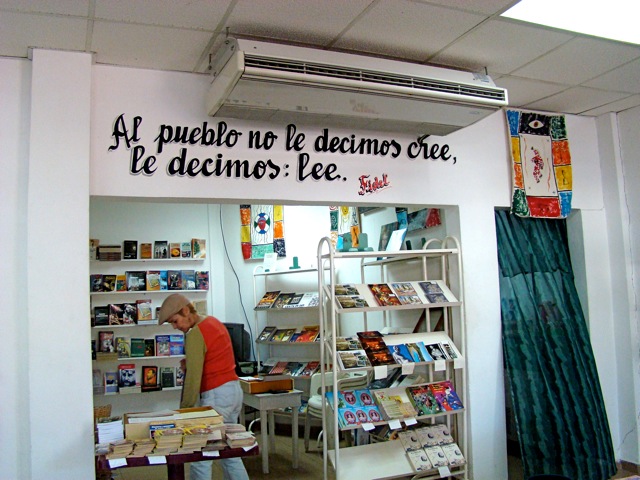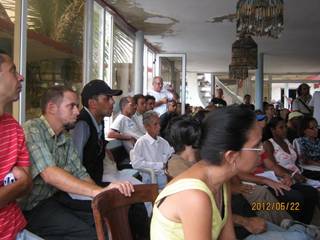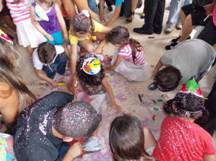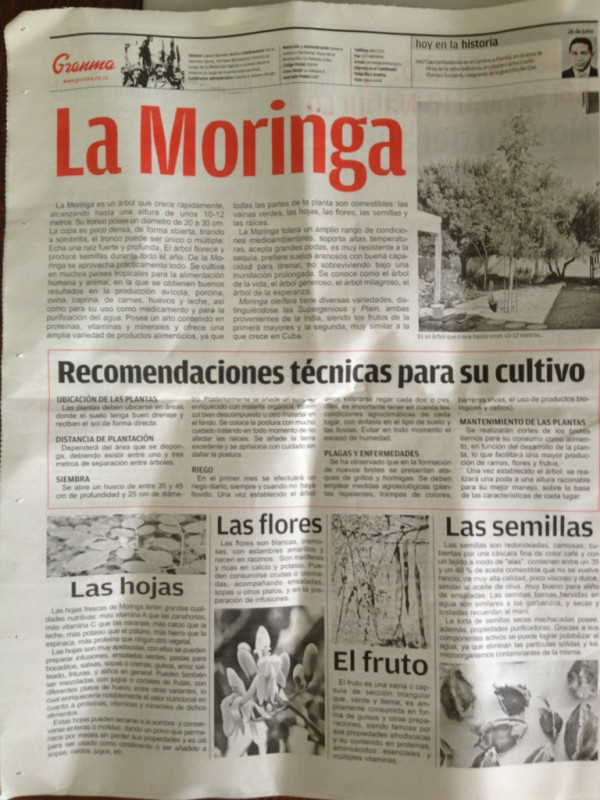One more stop against discrimination and prejudice against women
The Click Festival 2012, organized by the Blogger Academy, Spanish Blog Event and State of SATS — http://festivalclick.com — was a complete success. It generated much exchange of knowledge about twitter, blogs and variegated technologies. An air of enthusiasm characterized the event in spite of threatsof imprisonment and seizure of property of participants (http://www.cubadebate.cu).
Among the attendees a friendly andflamboyant musician stood out, who used a hat, better said a pot, with writing in Spanish and English that explained: “This is not a pot, it’s a hat.“
The rest of his companions were a group of at least two women, children of both sexes and musicians of the alternative group OMNI-ZONA FRANCA.
Dr. Flores, a lawyer from the NGO CUBAN LAWYER ASSOCIATION, and independent journalist, during one of the festival recesses,introduced Iris Ruiz, a young women with six boys and baby girls. Immediately the warning signal that any teacher possesses lights up: I wonder if the little ones are well cared for, if they are happy.
Although the observer’s impression may be favorable, some of the subjective causes can be predicted for why it is hard for the institutions of her residential zone and of the township where she lives (East Havana) to considerIris Ruiz, a single mother,”a high priority social case.”
In reality, Iris Ruiz, without intending it, is a transgressor of the values that prevail in today’s Cuba.
Cuban women generally have fewer than two children. Having more is interpreted from several angles. For many it means:
Craziness or mental disorders.
Little academic training.
It is synonymous with poverty.
Being Christian or peasant.
Iris Ruiz confronts other prejudices, too.
She is a white woman who “gives birth” to a black child.
She openly expresses pride in having a large family.
She is a single mother, which in the social imagination places her at a disadvantage.
Her current companion and the father of four of her children is Amaury Pacheco del Monte, coordinator of the alternative cultural project OMNI-ZONA FRANCA, a community project considered extravagant for it artistic projection and a particular spirituality. This heterogeneous group, which with its technique proposes to the world another artist’s view, also has participated in the Havana Bienneal, a very important cultural event. They recently toured the United States.
Thelimited solidarity of the neighbors on refusing to provide them water service in a country where dailyillegality shows, probably, not only a reaction of bewilderment before his legal status, but also reproach for his “unusual” conduct.
Each day grows the number of mothers who confronta housingsituationsuch asIris Ruiz is going through, whose case was published February 16 this year in www.cubanet.org under the title The ’squatters’ in Havana increase. She resides illegally in apartment 1 of Building E-83, Alamar zone 9, in Havana, where currently they live without water service or electricity. Her family was declared illegal squatters by Resolution 1608/2011, which records that “in 2004 the housing was confiscated, after definitively leaving their property,” for the United States. That is to say that for more than seven years the place was inhabited.
Jeers and insults, and especially, the little or zero social or governmental support to mothers with several children are an insidious form of violencewhere the helplessness of women in different spheres of society creates an unusual atmosphere.
In the midst of campaigns and efforts to hide the calamity of the gender violence, other ruthless acts of physical violence against women continue to happen, derived from the pure machismo and disdain for feminine dignity.
Being a woman is being mother. A mom would love one single child as much as she would love six of them. Even without the official figures of the women maimed or beaten, every day we hear of stories about such lamentable events of contemporary Cuba.
It is about time for civil society and women, in particular, to take action in an independent way.If Iris Ruiz creates conflict, the Cuban woman who is not to blame, should throw the first stone.
June 26 2012
 The cases of corruption involving Cuban officials who served in Fidel Castro’s regime are increasing. Or Raúl Castro is simply switching Fidel’s men for his own.
The cases of corruption involving Cuban officials who served in Fidel Castro’s regime are increasing. Or Raúl Castro is simply switching Fidel’s men for his own.
